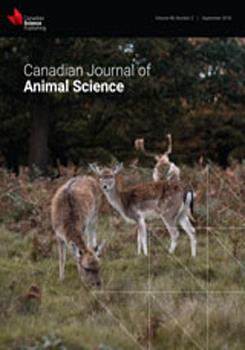Sixty male Small-tailed Han sheep (initial body weight: 42.5 ± 4.1 kg) were assigned randomly and averagely into four groups to evaluate effects of flavonoids extracted from Allium mongolicum Regel (AMR) on meat quality and composition of fatty acids related to flavor in longissimus dorsi muscle of lambs. Lambs of four groups were fed a basal control diet (C), and basal diet + three different amounts of flavonoids extracted from the AMR; those were 11 mg kg−1 (Flav 11), 22 mg kg−1 (Flav 22), or 33 mg kg−1 (Flav 33), respectively. Dressing percentage, loin eye area, cooking loss, and pressing loss were affected by treatments (P < 0.05). Percentage of intramuscular fat, the concentrations of eicosapentaenoic acid, C18:0, total saturated fatty acids, monounsaturated fatty acid, and 4-methyloctanoic acid in longissimus dorsi muscle were changed by treatments (P < 0.05). Addition of AMR to diet improved the meat quality and had favorable effects on fatty acid composition related to meat flavor in longissimus dorsi muscle.
How to translate text using browser tools
4 December 2018
Effects of flavonoids from Allium mongolicum Regel as a dietary additive on meat quality and composition of fatty acids related to flavor in lambs
Wangjing Liu,
He Ding,
Khas Erdene,
Renwei Chen,
Qier Mu,
Changjin Ao
ACCESS THE FULL ARTICLE
It is not available for individual sale.
This article is only available to subscribers.
It is not available for individual sale.
It is not available for individual sale.
Allium mongolicum Regel
Fatty acids
flavonoids
flavor
lambs
meat quality





